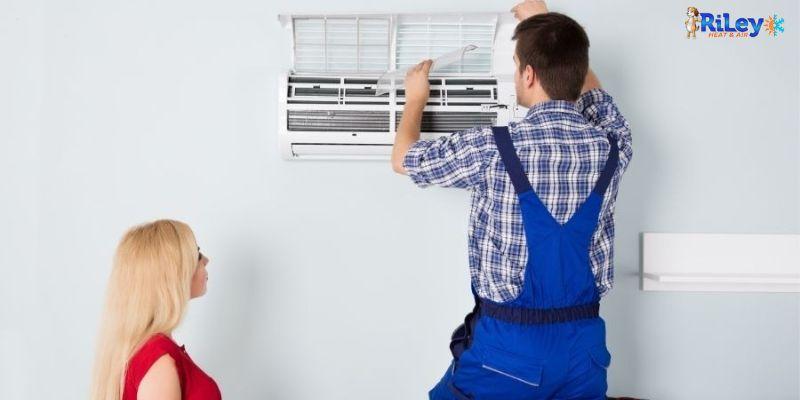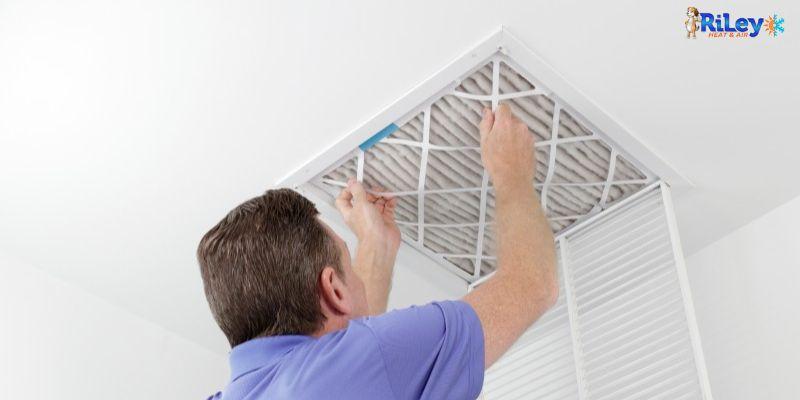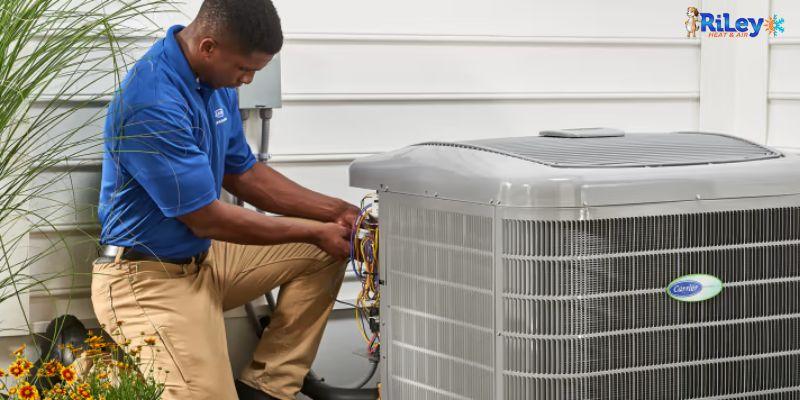
10 Expert Tips to Lower Your Monthly Energy Expenses with AC Maintenance
As temperatures soar during the scorching summer months, air conditioning becomes essential to our daily lives. While it provides much-needed comfort, it can lead to soaring energy bills if not properly maintained. However, with a few expert tips, you can keep your AC running efficiently and reduce your monthly energy expenses. This article will explore ten expert tips to help you achieve just that.
10 Tips for Reducing Your Monthly Energy Expenses with AC Maintenance
1. Replace or clean the air filters regularly

The air filters trap dust, dirt, and other particles that can affect the quality and efficiency of your AC unit. A dirty or clogged filter can reduce the airflow and make your AC work harder to cool your home. This can result in higher energy bills and wear and tear on your system. To prevent this, you should replace or clean your air filters at least once a month or more often if you have pets or allergies.
2. Clean the coils and fins

The coils and fins are the parts of your AC unit that transfer heat from the refrigerant to the air. Over time, they can accumulate dust, debris, and even mold, reducing their ability to absorb and release heat. This can also increase your energy consumption and damage your system. To avoid this, you should clean the coils and fins at least once a year using a soft brush, a vacuum cleaner, or a coil cleaner spray.
3. Check the refrigerant level
The refrigerant is the substance that circulates in your AC unit, absorbs heat from the indoor air, and releases it outside. The refrigerant level should be maintained according to the manufacturer’s specifications. If the refrigerant level is too low or too high, it can affect the performance and efficiency of your AC unit and cause problems such as ice formation, leaks, or compressor failure. To check the refrigerant level, hire a professional HVAC contractor to measure it using a gauge and adjust it if needed.
4. Clear the condensate drain
The condensate drain is the pipe that carries away the excess moisture your AC unit produces as it cools the air. If the condensate drain is clogged or blocked by dirt, algae, or insects, it can cause water to back up into your system and damage it.
It can also create a breeding ground for mold and bacteria, affecting indoor air quality and health. To clear the condensate drain, flush it with water or vinegar at least once a year or more if you notice any signs of clogging.
5. Adjust the thermostat settings
The thermostat is the device that controls the temperature and operation of your AC unit. Adjusting the thermostat settings can optimize your comfort and save energy. For example, you can set the thermostat to a higher temperature when you are away from home or at night when it is cooler outside. You can also use a programmable or smart thermostat that automatically adjusts the temperature according to your schedule and preferences.
6. Use ceiling fans or other ventilation methods
Ceiling fans or other ventilation methods can help circulate the cool air in your home and reduce the need for your AC unit to run constantly. They can also create a wind chill effect that can make you feel cooler without lowering the temperature. However, it would be best to remember to turn off the fans when you leave the room, as they do not cool the air but only move it around.
7. Seal any air leaks
Air leaks are gaps or holes in your walls, windows, doors, ducts, or other parts of your home that allow warm air to enter and cool air to escape. This can make your AC unit work harder to maintain a comfortable temperature and increase energy bills. To seal any air leaks, use caulk, weatherstripping, foam board, or other insulation materials to close them up.
8. Shade your windows
Windows are one of the primary sources of heat gain in your home, as they allow sunlight to enter and warm up your indoor air. This can make your AC unit run longer and use more energy to cool your home. You can use curtains, blinds, shades, awnings, or other window treatments that can block or reflect the sun’s rays to shade your windows.
9. Maintain proper airflow
Proper airflow is essential for the efficiency and performance of your AC unit, as it ensures that the cool air reaches every corner of your home and that the warm air is expelled outside. To maintain proper airflow, you should avoid placing any furniture, rugs, plants, or other objects near or on top of your vents or registers that can obstruct them.
10. Schedule annual professional maintenance
While there are some things you can do yourself to maintain your AC unit, some tasks also require professional knowledge and skills. For example, a professional HVAC contractor can inspect the electrical connections, lubricate the moving parts, test the controls, and check for any potential problems you cannot detect or fix on your own.
By scheduling annual professional maintenance, you can ensure that your AC unit is in optimal condition and prevent any costly repairs or replacements in the future.
Conclusion
Lowering your monthly energy expenses with AC maintenance is not only beneficial for your wallet but also for the environment. Following these ten expert tips ensures that your air conditioning system runs efficiently, keeping your home comfortable while reducing energy consumption. Remember, a well-maintained AC not only saves you money but also extends the lifespan of your unit, making it a wise investment in the long run. So, take these steps today and enjoy a cool, energy-efficient home all summer.
COMMENTS
LEAVE A COMMENT







This blog is a gold mine of practical advice! The ten expert tips for lowering monthly energy expenses through AC maintenance are insightful and actionable. This is a must-read for anyone looking to stay cool without breaking the bank. Well done to the author for sharing these valuable insights!